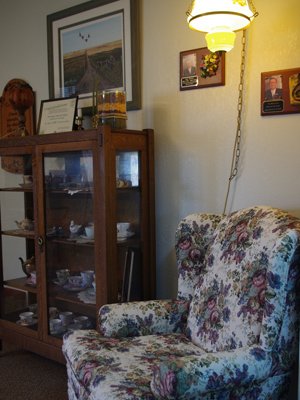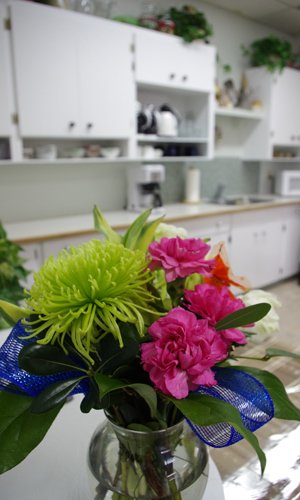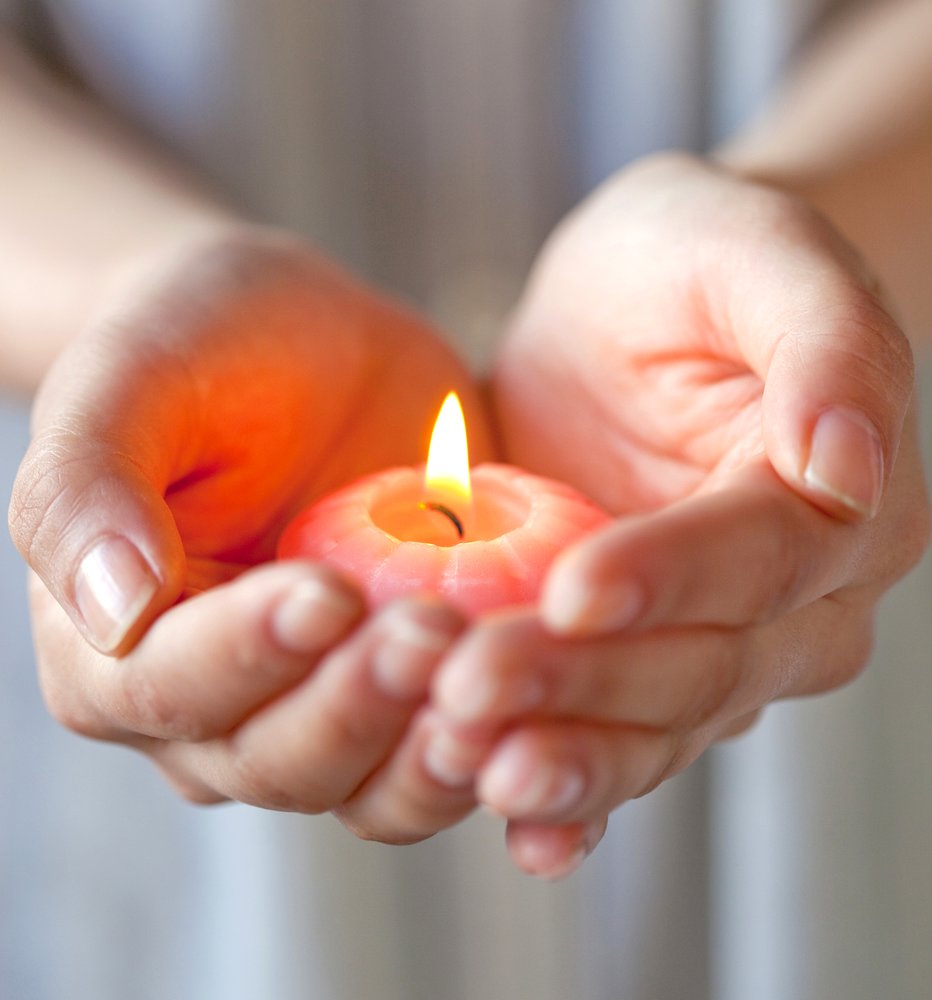FUNERAL ETIQUETTE
 Funeral Procession Etiquette
Funeral Procession Etiquette
If you wish to be polite but don't know how to react when a funeral procession approaches, here are some guidelines to follow:
- Funeral directors often advise those travelling to the cemetery to turn on their flashers or hazard lights. The vehicle at the front of a procession is typically flashing a purple light.
- Always be respectful and yield to a procession.
- When travelling in the same or opposite direction of the procession on a two-way road, pull off to the right and wait until all vehicles have passed. This is not a law but it is courteous and respectful.
- It is unlawful to cut into, cut off, or join a funeral procession.
- Do not honk at a procession.
- If you are outside when a funeral procession passes, it is polite to remove your hat and stand respectfully facing the vehicle until it passes.
Why have a Funeral
A funeral is a ceremony of remembrance for those who are mourning a loved one.
- Helps us acknowledge that someone we love has died
- Allows us to say goodbye
- Helps us remember the person who died and encourage us to share those memories with others
- Offers a time and place for us to talk about the life and death of the person who dies
- Provides a social support system for us and other friends and family members
- Allows us to search for the meaning of life and death
- Offers continuity and hope for the living

Funeral Service
The service held either at a place of worship or at the funeral home with the deceased present, varies in ritual according to denomination.
Private Service
This service is by invitation only and may be held at a place of worship, a funeral home or a family home. Usually, selected relatives and a few close friends attend the funeral service.
Memorial Service
A memorial service is a service without the body present and can vary in ceremony and procedures according to community and religious affiliations.
What is a Certified Celebrant?
- A celebrant is trained and certified to provide a funeral or memorial that is highly personalized to reflect personality, lifestyle and beliefs to the person who died
- Celebrants encourage participation by family and friends in helping to create a meaningful ceremony
- The celebrant will then write and facilitate the ceremony for you
Why have a Celebrant?
- A growing number of individuals call themselves non-religious and do not participate within a faith community
- Many people follow a strong ‘spiritual’ path but are not necessarily ‘religious’
- For both groups, when someone they love dies, they are often unclear about how to design a tribute that is fitting
- Friends and family often want to participate in the creation and presentation of personalized gathering, but may be uncomfortable or unable to speak publicly about death the loss of a loved one
- Funeral celebrants support the individual or family decision to present an spiritual and/or non-religious gathering

Advice on what to so before, during and after a Funeral Service
Before:
- Contact the funeral home or visit the funeral homes website to confirm the service is open to the public.
- Honor flower/donation requests. If the family requests a donation to a charitable organization in lieu of flowers, it is important to honor the family’s wishes.
- Show your support. If you are a close family friend, a great way to express sympathy is through actions. Volunteer to pick up their dry cleaning, shop for groceries, deliver meals, or even help with household chores. You might offer to help make necessary phone calls or stay at the house to take calls and receive guests while the family members make arrangements at the funeral home.
During
- Arrive early. Arrive at the funeral home, church or hall at least 15 minutes before the service is expected to begin. Remember to turn off all cell phones and all electronic devices that can make noises, such as a watch alarm.
- Sign the register book so that the family can have a keepsake of everyone who came to pay their respects.
- Participate in the ceremony. While every service is differ, and it is important to follow the lead or clergy or celebrant.
- Pallbearers. Friends, relatives, church members or business associates may be asked to serve as a pallbearer. If you are asked by the family to be a pallbearer, consider it an honor. You should accept if at all possible, unless physical limitations would keep you from helping to lift and carry the casket. (If you must decline, do so with regret, and explain why). The funeral director will inform you of your duties at the funeral and, if applicable, at graveside. Pallbearers usually carry (or, in the case of honorary pallbearers, accompany) the casket to the front of the church, funeral home or hall, to the hearse, and from the hearse to the burial site.
- Honorary Pallbearers. The family may request close friend or associate of the deceased to serve as honorary pallbearers. They do not actively carry the casket during the service.

After
- Take note of how the family is dealing with the loss to guide your words and actions. If they share memories or stories about their loved one, offer a special memory of your own.
- As time passes, you may be hesitant to reference a family’s lost loved one for fear of reminding them of the loss. Remember, though, that the family likely lives with reminders of their loved one daily and may instead appreciate your words of support or care as time goes by, particularly during holidays or other important anniversaries. They might find comfort in knowing you are thinking of them and their loved one, too.
Graveside Service
There may be a public graveside service for interment after the funeral. If the cemetery is distant from the funeral, there likely will be a motorcade or procession. If there is a procession the driving etiquette is fairly simple: follow the funeral directors instructions, turn on your headlights, and closely follow the vehicles ahead of you until you arrive at the cemetery for the graveside service.
- When you arrive at the cemetery, pull off to the side but don’t park on the grass unless directed to do so.
- Keep in mind that the chairs at the graveside are for the immediate family members ( or the infirm): others will be expected to stand.
- If you’re male, remove your hat during the service.
- It’s not polite to laugh loudly in a ceremony, engage in cell phone conversations during the service, or sit, walk, or lean on gravestones or markers.
- Keep your children in check and remind them that this isn’t the park, playing a game of tag is inappropriate.
- Avoid walking directly on graves, stay in between if you can.

Advice on what to say when someone passes away
The best way to express your feelings is through sincere, honest words that show compassion and support. Your feelings will be shown on your face and heard in your voice. If you still feel uncertain, consider one of the following expressions as a way to show support:
- I’m sorry for your loss
- You and your family are in my thoughts and prayers
- I’m here for you if you need anything
- Please accept my sympathy
- My heart goes out to you during this difficult time
General Information
Ex-spouses Funeral
Whether to attend the service honoring the passing of an ex-spouse can be a difficult decision.
- If your relationship with the family is cordial, and you wish to pay your respects, perhaps in memory of the years spent together or the children you share, then by all means, go.
- If you know or feel that your presences would be upsetting to the family of the deceased, or they might have a difficult time putting hard feelings aside, it’s kinder to simply send a note or flowers.
- If you do attend, don’t call attention to yourself or compete with the family for attention.
- Avoid saying anything derogatory, demeaning, or mean-spirited about the deceased, even if what you are tempted to say is a fact.
- Rise above your feelings or history to encourage and uplift the survivors who loved and cared about your ex.
Funeral Procession Etiquette
If you wish to be polite but don't know how to react when a funeral procession approaches, here are some guidelines to follow:
- Funeral directors often advise those travelling to the cemetery to turn on their flashers or hazard lights. The vehicle at the front of the procession is typically flashing a purple light.
- Always be respectful and yield to a funeral procession.
- When travelling in the same or opposite direction of the procession on a two-way road, pull off to the right and wait until all vehicles have passed. This is not a law but it is courteous and respectful.
- It is unlawful to cut into, cut off, or join a procession.
- Do not honk at a procession.
- If you are outside when a funeral procession passes by, it is polite to remove your hat and stand respectfully facing the vehicle until it passes.









